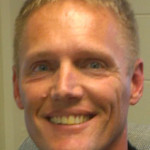By Samantha Jacquest
September 11, 2001.
A piece of history that we are still living through. Twelve years later we are still experiencing the aftermath.
While most students at UW-Whitewater were still in elementary school when the World Trade Center and Pentagon were attacked, many faculty and staff members remember it with perfect clarity.

Michael Nyenhuis, senior military science instructor, remembers exactly where he was when he first heard the news. He also remembers his first reaction: indifference.
Nyenhuis was in Kosovo, Serbia, on a peace-keeping mission with the Army Reserve. It was 3 p.m. local time, and a teammate came into the office to tell him a building in New York was hit by a plane.
“I didn’t think anything of it, because once or twice in the past small planes have hit the towers on accident,” Nyenhuis said. “Then about another 20 minutes later, someone else came in the office to say the same thing, except this time it was plural, two planes.”
Nyenhuis made it to the only television in the building in time to watch the first tower fall.
Outrage, confusion, heartbreak and everything in between is how Nyenhuis described a packed room of over 100 people.
“There was just stunned silence,” Nyenhuis said. “Immediately, everyone knew we were attacked.”
Nyenhuis said he immediately wondered who was responsible for the attack and how to respond. Then, his thoughts went to the thousands of soldiers in Kosovo with him, wondering how they were feeling and what their next steps were. At first, Nyenhuis said, no one, not even their leaders, knew what to do.
Eventually, the soldiers were ordered to increase security: weapons were loaded, full battle gear was put on and all the civilians were ordered out of the military base. The soldiers were finally told to go on with the mission as planned but with heightened security.
“There wasn’t necessarily concern we were going to be a target, but there was a sense that we had to get somebody; somebody had to be responsible,” Nyenhuis said.
On top of the confusion and anger was anxiety over the lack of communication with loved ones in the states. Nyenhuis was not able to reassure his wife that everything by him was safe until two days after the attack. Some people waited almost a week without any word from their family and friends in New York because of the jam in communication outlets.
Finally, Nyenhuis went home at the end of his mission in October. He came home to a much different home than he left.
“For one thing, the airports were empty,” Nyenhuis said. “Then, everywhere you looked you saw American flags: on almost every home, business, and bumper sticker. It was amazing how much patriotism that event brought to the floor, how people realized how much this country meant to them.”
Nyenhuis experienced the patriotism first hand.
“Everywhere I went in uniform, people would thank me, I had dinners bought for me by people I will never meet, and that kind of stuff didn’t happen before 9/11,” Nyenhuis said.
Life kept changing in the following years. Before 9/11, people joined the Army Reserve and National Guard with the expectation that they would never go to battle. As the War on Terror progressed, military efforts increased. By 2003, members of the Army Reserve and National Guard could expect to be mobilized every three years.
September 11, 2001 changed American’s history, and things will never go back to the way they were before that tragic day. Whether that is a good or bad thing is not always easy to tell.
“There was such a loss of life: 3,000 civilians died, the largest attack on civilians we have ever had,” Nyenhuis said. “For that reason alone, it’s important to remember this day. We were attacked for our ideals and by someone who doesn’t share our same ideals for freedom that we have in this country. And it’s important to remember how we came together as a country in the aftermath.”

